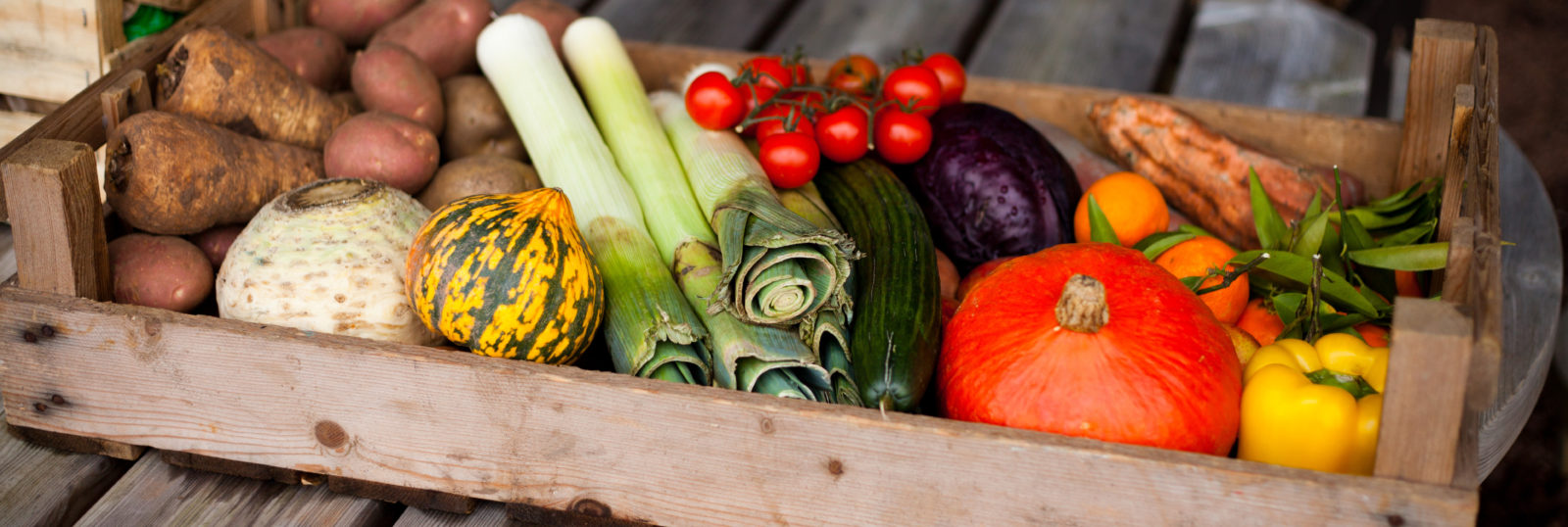Whether you're looking for ways to incorporate more vegetables into your cuisine, or if you're committed to decreasing your ecological footprint, or simply exploring new ways of engaging with your community, joining a CSA—which stands for "community supported agriculture"—might be for you.
Through a CSA, a farmer offers a certain number of "shares" to the public. As a consumer, you can purchase a share (aka membership) and receive a box (bag, basket) of seasonal produce, weekly or monthly, depending on your CSA. This arrangement allows farmers to earn important early-season capital and have a guaranteed market for their produce.
Shares typically consist of boxed vegetables, but some farmers also provide the option to buy fruit, eggs, yogurt, cheese, flowers, or other farm products in addition to the vegetables.
Most CSAs require an annual, quarterly, or seasonal commitment and provide weekly or monthly deliveries or pick-ups. Many CSAs also offer farm visits, you-pick days, and other special events for members. There are also third parties that set up CSA-like businesses, where they act as middle men and sell boxes of local food for their members.
Shared risk is an important concept within the CSA model. Members pay up front and the farmers do their best to provide an abundant box of produce each week, producing a sense of "we're in this together." If it is a bad season, members are not typically reimbursed. This is generally easier for repeat members to accept than new members who have no previous bounties to which to compare the disappointing experience. The take-home message is this: if the potential for "not getting your money's worth" makes you feel anxious, then shared risk may not be for you and you should shop at the farmers' market. However, barring a disastrous harvest, members enjoy overall lower food costs, field-fresh produce, and greater access to high-demand fruits and vegetables like blueberries, peaches, and heirloom tomatoes.
Benefits for Consumers:
- Receive ultra-fresh food from a known source with all the flavor and vitamins;
- Learn about and have access to new seasonal and local varieties of fruits, vegetables, and herbs that might not be available in local grocery stores;
- Develop a relationship with the farmer who grows your food and learn more about how food is grown;
- Access to a farm as a resource for educating children on how food is grown and the ecosystem.
Benefits for Farmers:
- Receive payment early in the season, which helps business planning and cash flow;
- A higher and fairer return for products by selling direct to the public and cutting out the middle man;
- Farmers have the ability to build a returning customer base annually through a direct relationship with consumers.
Benefits for Communities:
- Improved community networks, social responsibility, and enhanced sense of community and trust;
- Environmental benefits of reduced greenhouse gas emissions related to food travel, less packaging, and ecologically sensitive farming with improved animal welfare;
- Growing practices that may contain low or no pesticides and hormones.
In 2012 the U.S. Department of Agriculture listed 12, 617 farms utilizing the CSA model click here if you're interested in finding a CSA near you.

